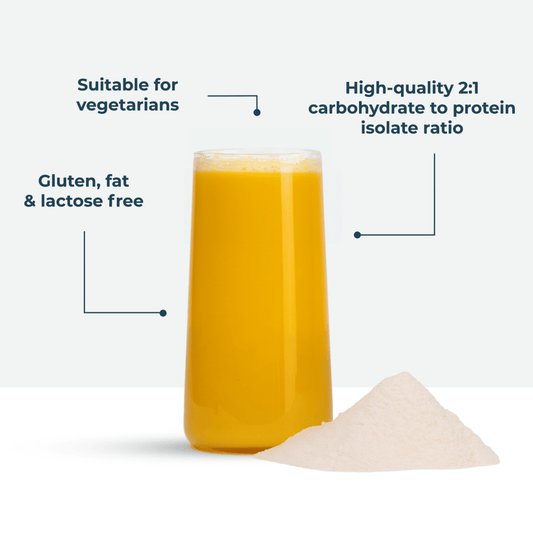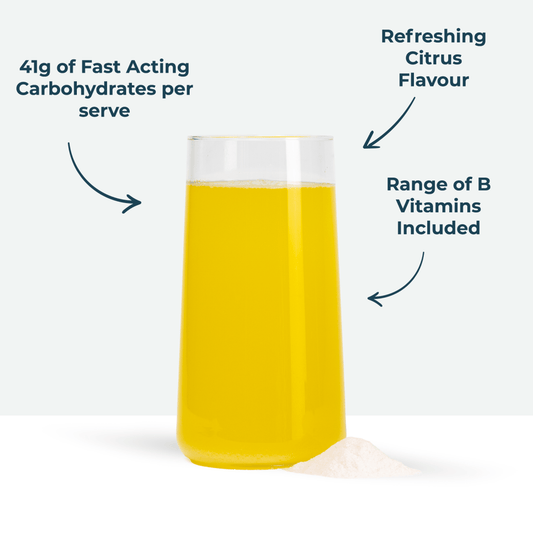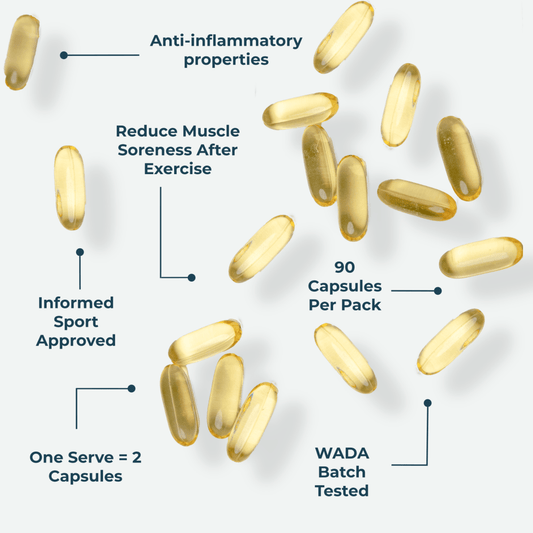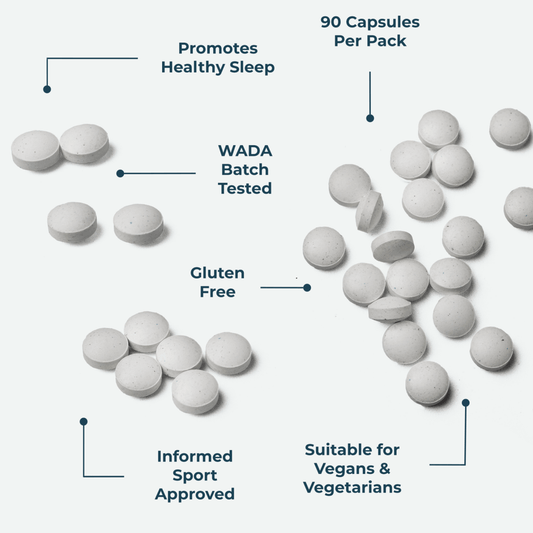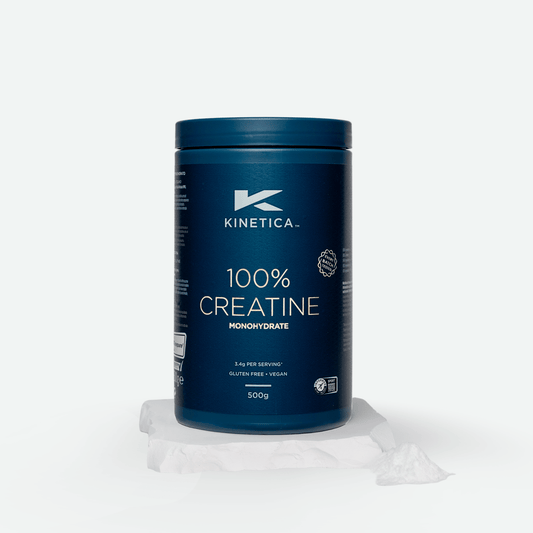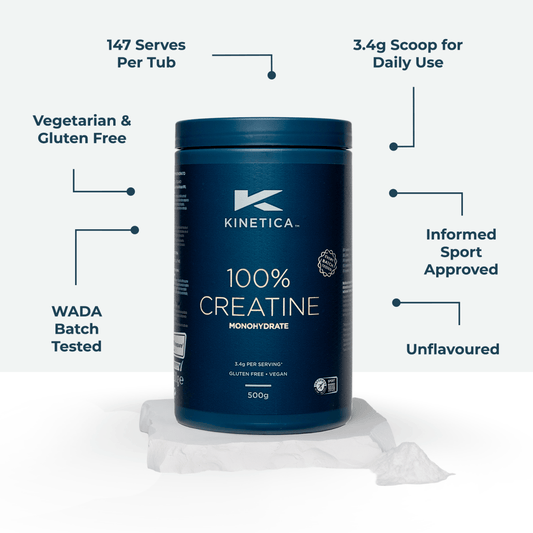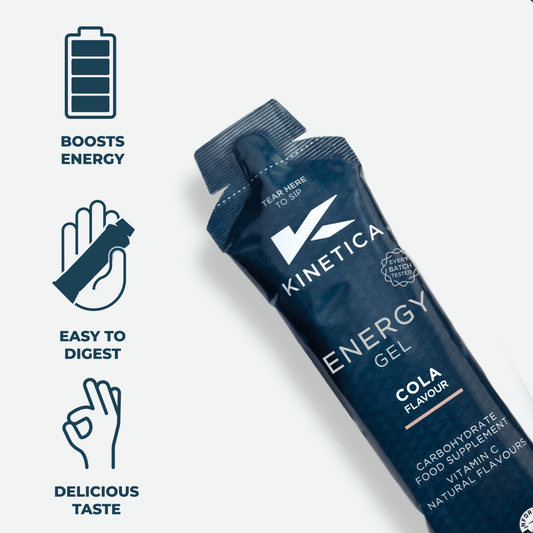Supplements for Endurance Athletes: Enhancing Stamina Through Precision Support

Endurance athletes—you’re the warriors of willpower, the champions of grit, and the embodiment of human potential stretched to its awe-inspiring limits. Whether pounding the pavement for a marathon, pedalling through a century ride, or swimming across open waters, your body is a machine that thrives on dedication and discipline.
However, even the most resilient machines need the right fuel, care and maintenance to perform at their peak. As an endurance athlete, you aren’t just testing your cardiovascular capacity—you’re testing the resilience of your entire physiology. The volume, frequency, and metabolic demands of sustained aerobic output greatly stress recovery systems, nutrient status, gut health, and hormonal regulation (Vitale & Getzin, 2019).
This creates a paradox: endurance athletes are incredibly fit but not always that healthy.
What do I mean by this? You have built a system that can accomplish monumental fitness tasks. However, this frequently comes at a price of underlying health issues such as a higher risk of respiratory infection, gut permeability and low testosterone (Colbey et al., 2018; Hackney, 2020; Ribeiro et al., 2021).
· Upper respiratory infections are an issue because you feel unwell, and it pulls you off your training schedule.
· Gut permeability is a problem because when macro molecules and bacterial fragments get through the gut lining into circulation, you are at risk of more systemic chronic low-grade inflammation (Fasano, 2020)
· Low testosterone is an issue because it blunts almost all aspects of your performance (physically, cognitively and emotionally)
In helping professional athletes, I am mindful that high fitness does not always equate to better health. As a result, I place a premium on understanding how they adapt to training load and competition so that we can be proactive and preventative in how we think about sustainable high performance.
In this article, I’ll share some tips to help you do the same. My hope is that you can compete at your best as a result. As you will find out, appropriately timed supplements can be a great resource here.
The Importance of Personalising Your Supplementation
While generic supplement protocols can offer benefits, the truth is that no two athletes are physiologically or biochemically identical. Multiple dynamic factors shape your nutritional needs:
· Genetics – e.g., differences in methylation, iron metabolism, caffeine sensitivity, or omega-3 conversion efficiency (Thakkar et al., 2021)
· Training load and periodisation – volume, intensity, and recovery phases influence micronutrient turnover and energy system demand (Rakhra et al., 2021)
· Dietary intake – gaps in your food choices may not be obvious without proper tracking or testing.
· Environment – altitude, heat, and travel affect hydration, electrolyte loss, and oxidative stress. (McCubbin et al., 2020)
· Lab values and biomarkers – objective data (e.g., ferritin, vitamin D, cortisol, HRV trends) reveal what your body needs (Boullosa et al., 2021; Carrasco-Poyatos et al., 2024)
· Subjective feedback: Fatigue, mood, sleep, motivation, and digestive comfort all reflect your internal physiological state. (Barrero et al., 2020)
Here’s how you can do it.
1. Start with Baseline Testing
A great place to begin is by assessing your current needs using blood work and advanced functional medicine laboratory tests (e.g., organic acids and in-depth stool testing). These can highlight deficiencies, absorption issues, or metabolic bottlenecks that impact endurance.
In my experience using these types of tests, common issues stand out time and again: vitamin D deficiency, omega-3 fatty acid deficiency, digestive enzyme deficiency, and a higher need for certain nutrients such as plant-based antioxidants like curcumin, methylated B vitamins, probiotics, magnesium, and dietary antioxidants like Vitamins A, C, and E. All these issues can impact energy, recovery, and resilience.
2. Track Training Load & Recovery
Another way to understand your supplement needs is to track digital metrics like heart rate variability, resting heart rate, and subjective wellness scores. Trendlines here help you understand how your body responds to training load and competition, which is important to know, especially in the context of broader stressors. Once you have this data, you can use it to adjust supplement cycles around high-stress periods or recovery blocks.
Please note: When calculating your HRV accurately, I recommend you use apps that work with clinical-grade heart rate sensors, like the Polar H10, rather than wrist-based or ring-based wearables (Miller et al., 2022). An ECG chest strap is the only way to measure your HRV directly, as it is the only consumer device that tracks your heart's electrical activity.
3. Periodise Your Supplement Strategy
Just as your training plan adapts throughout the season, your supplementation should also adapt. For example, if HRV trends are dropping, you may require more magnesium and omega-3 fatty acids during high-intensity training phases (Christensen, 2011; Lopresti, 2020). In this way, personalised supplementation isn’t always about taking more—it’s about taking what works for you based on real-world data, needs, and performance.
Useful Supplementation for Endurance Athletes
If you’re an athlete competing at any level—or want peace of mind about what you’re putting in your body—every supplement should be third-party tested and Informed-Sport certified.
Products certified by Informed-Sport are tested for WADA-prohibited substances, ensuring no contamination or banned ingredients. This is non-negotiable for professionals and serious amateurs alike.
Whey Protein
· What: Kinetica Sports Whey Protein is derived from grass-fed whey and provides a high-quality protein source.
· Why: Endurance training can lead to muscle breakdown. Consuming adequate protein supports muscle repair and growth, which is essential for recovery and performance maintenance (Witard et al., 2014).
· How: Consume one 30g serving (1 scoop) post-exercise to aid recovery. Each serving delivers 23g of protein. Mix with water or milk based on preference.
Energy Gels
· What: Kinetica Sports Energy Gels are formulated to provide a quick source of carbohydrates during exercise.
· Why: Maintaining energy levels during prolonged exercise is crucial. Energy gels offer a convenient way to replenish glycogen stores and sustain performance (Kerksick et al., 2017).
· How: Consume one gel during endurance activities to maintain energy levels. Each gel delivers 24g of carbohydrates.
Electro-C
· What: Kinetica Sports Electro-C is an electrolyte supplement designed to support hydration.
· Why: Electrolytes are vital for muscle function and fluid balance. Supplementing with electrolytes helps prevent dehydration and muscle cramps during intense exercise (Sawka et al., 2015).
· How: Add one tablet to water and consume it during or after exercise to maintain hydration and electrolyte balance.
Creatine Monohydrate
· What: Kinetica Sports 100% Creatine Monohydrate provides pure creatine to support energy production.
· Why: Creatine enhances the body’s ability to rapidly produce energy, improving performance during high-intensity, short-duration activities .
· How: Take 3.4g (1 scoop) daily, ideally post-workout or in the morning, to support energy production and muscle recovery.
Collagen Powder Joint & Muscle Support Complex
· What: Kinetica Sports Collagen Powder supports joint and muscle health.
· Why: Collagen is a primary component of connective tissues. Supplementing with collagen can support joint health and aid in muscle recovery, which is beneficial for endurance athletes.
· How: Consume the recommended serving daily to support joint and muscle health.
Zinc Mag
· What: Kinetica Sports Zinc Mag combines zinc and magnesium to support recovery and sleep.
· Why: Zinc and magnesium play roles in muscle function, recovery, and sleep quality. Supplementing these minerals can aid in recovery and improve sleep, which is crucial for athletic performance (Rawji et al., 2024).
· How: Take three tablets in the evening to support recovery and sleep quality.
Omega-3 Fish Oil
· What: Kinetica Sports Omega-3 Fish Oil provides essential fatty acids EPA and DHA.
· Why: Omega-3 fatty acids support cardiovascular health, reduce inflammation, and aid in recovery, which are beneficial for endurance athletes (Fernandez-Lazaro et al., 2024).
· How: Take 2-3 capsules daily with food to support overall health and recovery.
Energy Carbohydrate Powder
· What: Kinetica Sports Energy Carbohydrate Powder provides a blend of carbohydrates to fuel endurance activities.
· Why: Carbohydrates are the body’s primary energy source during prolonged exercise. Supplementing with carbohydrate powder helps maintain energy levels and delay fatigue (Leaf et al., 2024).
· How: Mix the recommended serving with water and consume before or during exercise to sustain energy levels.
Recovery Powder
· What: Kinetica Sports Recovery Powder is designed to support post-exercise recovery.
· Why: Proper recovery nutrition replenishes glycogen stores, repairs muscle tissue, and prepares the body for future training sessions (Tiller et al., 2019).
· How: Consume the recommended serving within 30 minutes post-exercise to optimise recovery.
Training makes you fitter. But it’s the adaptation that makes you better. Personalised supplementation is a strategic edge that helps your body absorb the training, not just survive it.
By learning to listen to your body’s data—both objective and subjective—and by layering in targeted support through evidence-based supplements like those from Kinetica, you can train hard, recover fast, and stay healthy enough to keep showing up.


